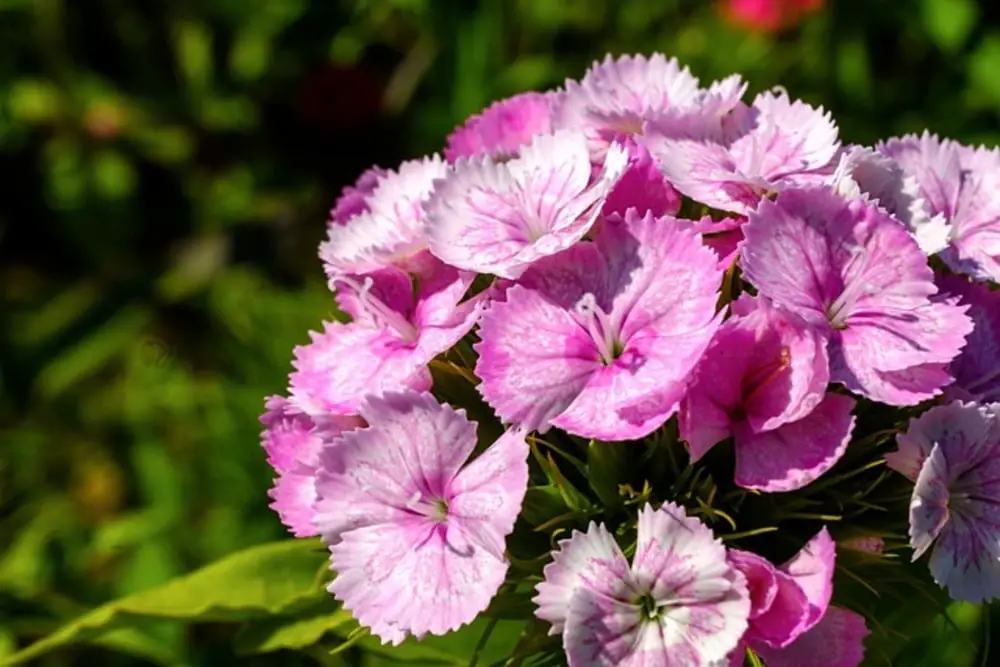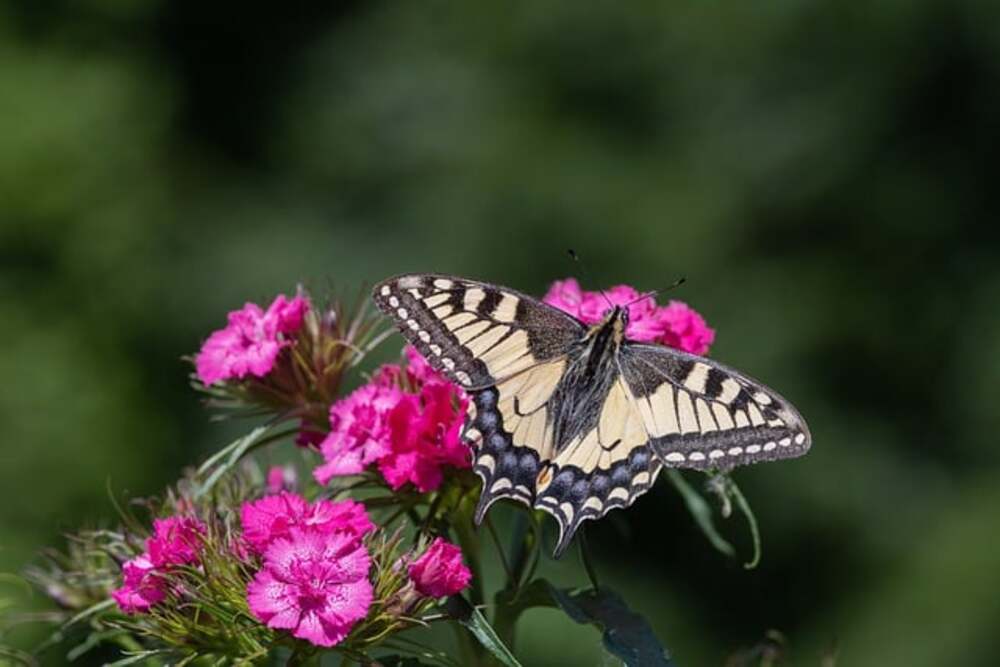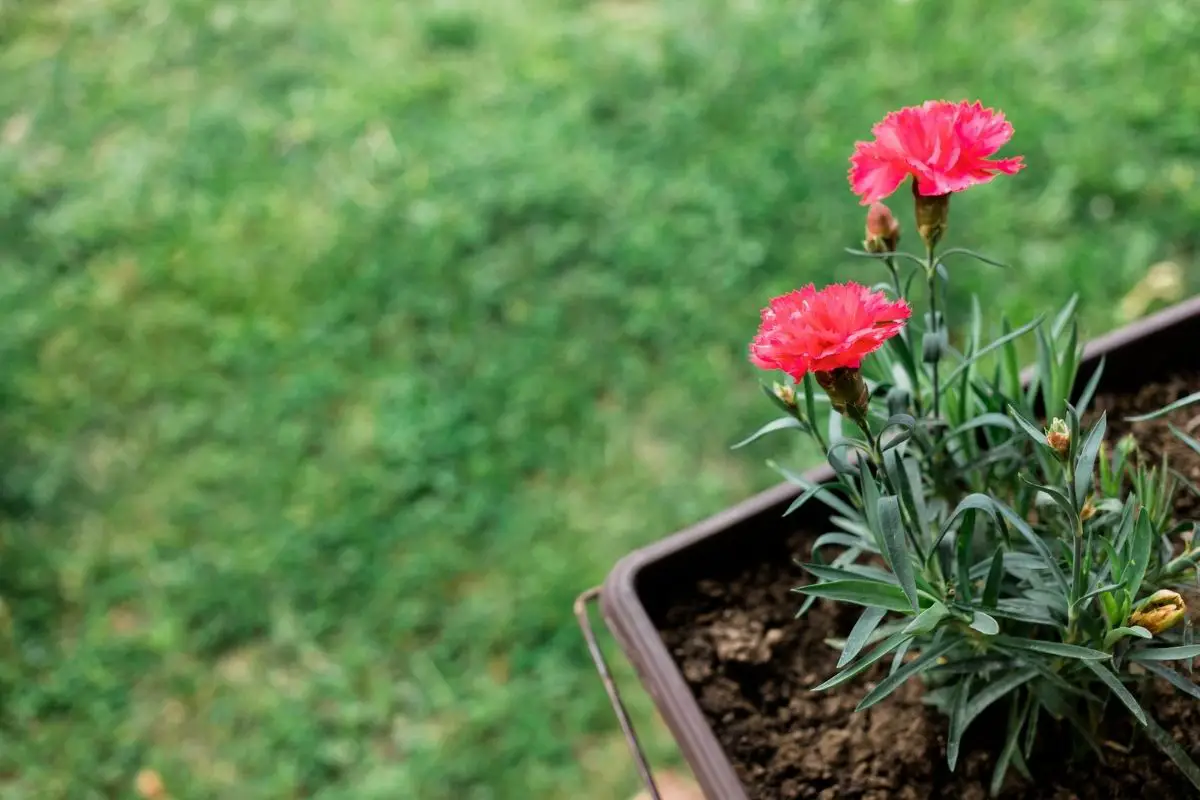Carnations are surely among some of the world’s most popular flowers out there! It’s no doubt at all since it radiates with beauty and such grace. The intricate design and gorgeous colors of these blossoms make them stand out!
Growing carnation flowers is as easy as pie and has ornamental and folkloric uses! Some might even say this is a sacred flower for only kings and queens. Behind any flower’s grand popularity is a hidden meaning and symbolism – and carnations surely have a lot of both!
The meaning of a carnation varies with different colors. For example, a white or red carnation symbolizes innocence or passion. A pink or purple carnation means a motherly love or playfulness. Lastly, a yellow or orange carnation represents rejection or creativity.
History of Carnation Flowers
The first carnations grew in 1566 and have been in cultivation for over 2,000 years! It described an herbaceous plant with double petal flowers mostly pink in color. The flowers had quite an interesting spicy fragrance used extensively in the floral industry.
Colombia is the world’s largest producer of carnations for this industry followed by Israel, Kenya, and Spain! The flowers are native to Eurasia and the Mediterranean regions.
Carnations belong to the genus Dianthus of the Caryophyllaceae or Pinks family. 300 species comprise the genus. The flowers are divided into two general groups to distinguish their type – the garden and perpetual flowering carnations.
The genus name (also its scientific name) comes from the Greek words Dios meaning the god Zeus and Anthus meaning flower. The floral name though is a whole different story.
The floral name carnation can also come from the Latin word carnis meaning flesh. It can also come from the words coronation or corone using flower garlands – it was first used by the ancient Greeks and Romans to honor their gods!
The Carnation is scientifically known as Dianthus caryophyllus. It also goes by other common names such as Grenadine and Clove Pinks. Some of the popularly cultivated Carnations include the Sweet William (D. barbatus), the Chinese Pinks (D. chinensis), and the Cheddar Pinks (D. grataniapolitensis).
Symbolism of Carnation Blossoms
Carnations are held in high esteem as a symbol of a strong and pure woman and of course – the sacred gods. In some cases, carnations symbolize expressing love and affection.
The most popularized symbolism of carnations was started by Anna Jarvis of Philadelphia in 1907. She personally selected a pink carnation as the symbol for Mother’s day – and the trend has stuck up to this day! In this regard, carnations represent feelings of passionate love.
Carnations are also known as the birth flower for January. Its name comes from the word carnis symbolizing flesh and refers to the incarnation of God through Christ.
In Spain, carnations flowers are regarded as floral symbols depicting divinity for strength, protection, and healing. A red carnation flower is also the country’s national flower.
Meanwhile in the United States, a scarlet carnation flower is the official flower of the state of Ohio to honor the late president McKinley wherein he used to wear one flower pin on his lapel.

Meaning of Carnation Flowers
A flower befitting kings and queens. Carnations in a straightforward sense literally mean the flower of the gods. Just like amazement for the heavenly bodies, a carnation can also speak of fascination for the gods or kings!
In a much more in-depth understanding, Dianthus flowers can stand for strong and well-grounded bonds of love – such as that of a mother and her child. These blossoms also represent good health and energy as well as impulsiveness – sometimes!
There are many carnation colors out there. There is a striped carnation and other colors that are just solid. Here is a list of those colors and the meaning behind each.
What does a White Carnation Flower Mean?
Soft yet ivory white carnations symbolize purity and sheer innocence or faithfulness. If being pure like that isn’t enough, these flowers also mean good luck for those with a good heart!
What does a Pink Carnation Flower Symbolize?
Carnations are popular in pink – that’s why it’s also called Clove pinks! It’s either light or dark pink carnations that you see in markets. A very important symbolism of this flower is the love of a woman but most especially, a mother.
What does a Purple Carnation Flower Indicate?
Purple carnations indicate a playful or changing mood and manner! But don’t worry, these traits are quite fanciful if quaint and not offensive! It can also symbolize a wild and free spirit.
What does a Red Carnation Bloom Represent?
Red carnations grew to have more than just one shade. There are dark red carnations, light red carnations, and even a pale red carnation.
The rich red carnation meaning is about a determined mind’s passion and admiration for learning new things! These also indicate a strong heart’s pride.
What does a Yellow Carnation Flower Symbolize?
Sadly, yellow carnations meant gloomy symbolic meanings. A yellow carnation, unlike other yellow flowers, has a more sad sentiment to it.
A yellow carnation expresses disappointment and disdain. It’s actually a subtle way to affirm a way to symbolize a rejection!
What does an Orange Carnation Flower Represent?
Orange carnations symbolize all the good and positive things in life. It represents happiness, warmth, determination, and creativity.
What is the Cultural Significance of a Carnation Blossom?
The cultural impact of carnations is just as rich as its history, meaning, and symbolism. In the Netherlands, white carnations are worn as ornaments to commemorate veterans and the efforts and sacrifice of the resistance during World War II.
Red carnations are also held in the same regard in Portugal. The flowers represent the 1974 military and civil coup called the Carnation Revolution and were placed on muzzles and worn on clothing.
Such flowers also culturally symbolize socialism and the labor movement. It was the popular floral motif used during Worker’s Day or more commonly known as May Day. Surprisingly, carnations are also popular during St. Patrick’s day.

What is the Biblical Meaning of a Carnation Floret?
The pink carnations have a special meaning in the Christian religion. Many believers say that this flower was the first to appear while Jesus carried His cross.
Others firmly believe that Dianthus flowers sprung from the Virgin Mary weeping. As her tears fell, flowers bloomed representing her love and sorrow for Her Son who suffered in pain. This was what brought about carnations symbolizing a mother’s love.
What is the Spiritual Influence of a Carnation Bloom?
The spiritual strength of Dianthus blooms lies in its beautiful petals and soft pink shade. These flowers provide a strong foundation of protection and courage and promote emotional and physical healing.
It is a flower made especially as a source of mighty strength. These initiate the seasons of change in life while soothing and healing the heart on the journey from past trauma. What this flower does best is engage in the sense that the idea of rebirth is a beautiful yet mysterious thing – one that should not be doubted!
What are the Folktales Associated with a Carnation Flower?
There is a folktale going around about the magical abilities of a carnation blossom. It’s not the type of story you hear every day! Folkloric Italians believe that the flowers were handed on St. John’s Day or Eve to suspected witches!
The witches under the flower’s enchantment would count the petals one by one and would allow the captured to break free and run away for her grip!
Similarly, placing these fresh flowers around your house has special powers. Some say that placing a vase of these near the front door will offer protection from unwanted evil spirits. You can also place them on top of the kitchen dining table to invite bounty!
Or if you would want good things around you, place an amulet of carnations in your pocket to attract protection, healing, and love!
What does a Carnation Floral Tattoo Symbolize?
The beauty of a carnation tattoo also has a very deep and heartfelt symbolic meaning. Those few brave souls who choose this design want to embody their deep admiration and keen passion for all the beautiful things in life.
Such people with amicable hearts and souls want to represent their love and beauty with this tattoo!
Uses of Carnations
Carnation plants and their flowers make a great addition to growing in an outdoor garden or pot. It makes a great cut fresh flower arranged in bouquets or vases for special occasions for loved ones.
Carnations were also popularized as a flower for a first date and was also used as a traditional funeral flower. But its most famous use is as Greek ceremonial crowns for the ancient gods and goddesses.
Aside from their floral uses, Dianthus flowers also have a few medicinal applications. A carnation tea infusion can be made from these flowers that have a calming and healing effect on the nervous system. This infusion also has claims of treating common kidney and bladder ailments as well as eczema and stomach aches.
In historic European times, the flowers were traditionally used to treat common fevers. During the Elizabethan era, these were also used as a spice in wine and ale as a substitute for expensive cloves.
A word of warning that it’s a must to always consult a medical professional before using this plant or any part of it for medical purposes.
~ image source: depositphotos/[email protected]

